Lingerie- Shaming in India
An Unchanging Practice
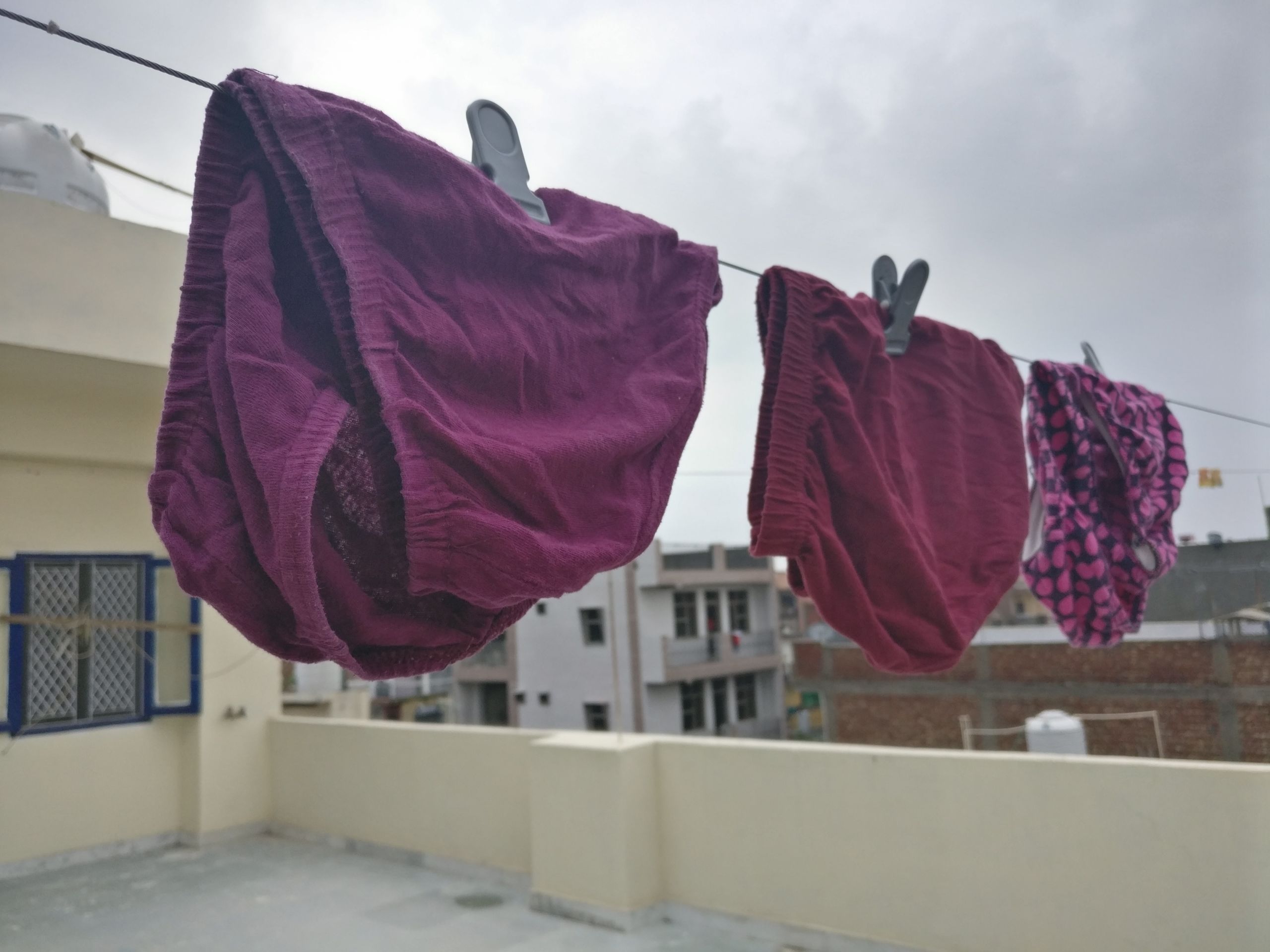
As I stepped out of the shower that summer morning carrying my wet towel and freshly washed undergarments to dry out in the balcony where we usually hang all our clothes, my mother rebuked me for my lack of sensibility.
I felt a tinge of sadness because these sardonic remarks are the result of an upbringing in a patriarchal society, which is so dominant in the country I live in that is India as she tells me to hang my bra and panties in the bathroom because she didn’t want to be embarrassed at the sight of ‘ladies lingerie’ hanging in her veranda as if it would disavow the aestheticism of the house.
I glanced at the neighbourhood balconies where I could see men’s polka dot boxers, their cotton briefs, and trunks drying out without an ounce of shame or guilt associated with them. I looked at the veranda of my closest neighbour, hardly ten meters away from my very own where the sweet lady who lives with her dog has put her panties to dry outside by covering it up with a large piece of clothing which seemed like a soft see through linen towel to keep the undergarment well hidden.
The walk of shame from the balcony to the bathroom got me thinking as I hung my thongs on the hooks behind the door, - ‘Is the sight of undergarments (even while not wearing them) an invitation for sex in this modern capital city that I live in?
And if not, then why is so much shame associated with women’s lingerie that they can’t even be seen drying outside any Indian house along with the other set of clothes? Why is the need for hiding them inside a cloth taken more seriously than a religious ritual?
In the rural parts of India, women take this up with earnest dedication to make sure the panties stay hidden either in the backyard or in the bathroom or concealed meticulously beneath a saree or a skirt, considering they don’t have access to washing machines or don’t have the money to buy them, but are they aware of the consequences of drying these underwear without proper sunlight?
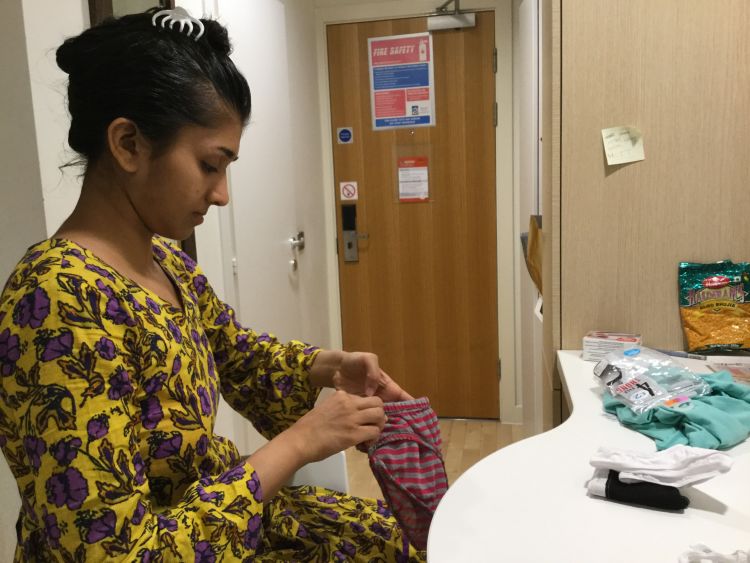
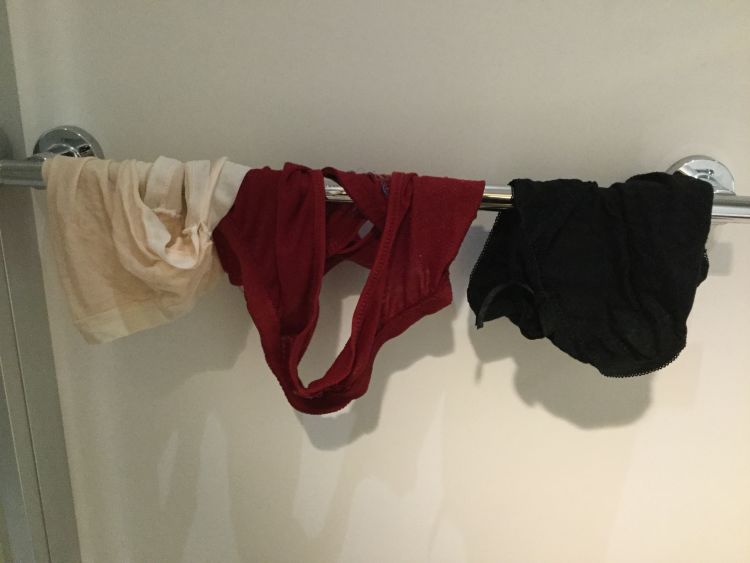
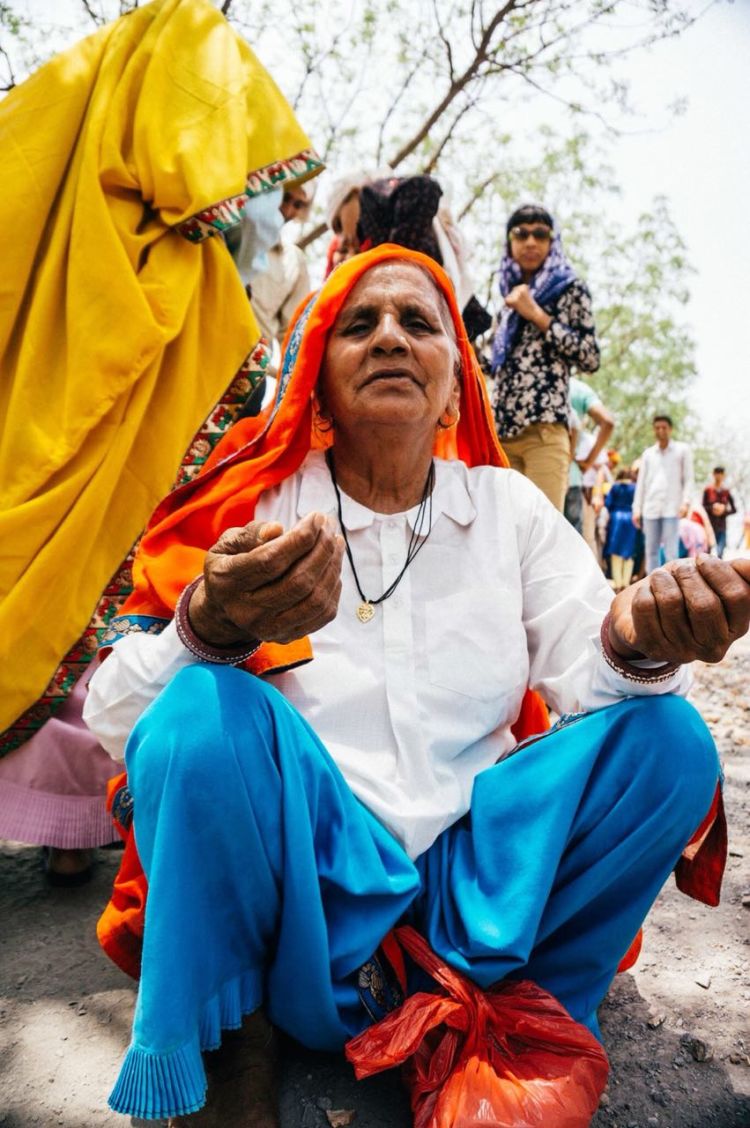
“Bacteria requires moisture to grow in addition to other requirements”,
says Jaydev Patel, Sr. Microbiologist from Aspire Labs, who has had more than 15 years of experience in the field of microbiology and pathology,
“If undergarments are not dried properly microorganisms get a chance to grow and may cause different types of diseases.” Itching, swelling, redness, burning sensations when you pee, discharge from the vagina are just some of the wider implications of the actions performed by the village women according to Jaydev. This is how strong a hold patriarchy has in the minds of people considering the fact that we would even ignore our own health just to serve the norms put up by the society.

Purnima Madhivanan, MD, MPH, PhD, Associate Professor of Epidemiology in Stempel College of Public Health & Social Work has worked in rural India for the past fifteen years and recounts that among the communities she has worked in, 98% of the households don’t have any washers where clothes are washed manually with their hands using soap and water.
Many of them take the clothes to the common water source to wash the clothes. Then the clothes are dried out on the ground under the sun or on a clothesline or in their house for personal effects.
“There is stigma and shame associated with menstruation which prevents girls from showing undergarments openly. There are so many myths and issues surrounding reproductive health and hygiene practices in rural communities”, narrates Purnima from her experience, “I think we should be role models to our young ones so that they are not learning about negative body image and shame about their reproductive health. Men are also an integral part of that discussion.”
Anjali is a student living in London for over a year now and hails from Gujarat, which is a western part of India.
She has faced underwear shaming on countless occasions, be it in Gujarat or Mumbai but says that her mother is more supportive now that there is so much awareness out there, but at the same time she addresses the fact that making elderly people understand this concept is a very tough nut to crack, the chances being slim to none. At the same time, a housemaid in Surat feels that she is doing her laundry in a hygienic way by hiding her undergarments inside the saree,”I don’t want my kids or elder people to see my panties, so we hide it under a cloth or skirt, and that’s how we like doing it and will continue to do so, no matter how much the technology advances”, says she.
There are innumerable restrictions for women living in India, but what do you do when those restrictions become the possibility of a dangerous future? Do you still continue practicing them only to satisfy the society's ego or do you stand up for yourself and fight for awareness? Of course it may sound hysterical to not entertain the obvious choice here, but at the same time the responsibility of speaking up for these women and getting the facts out there lies on our shoulder, because what's the point of being a human if we can't help and protect fellow humans.
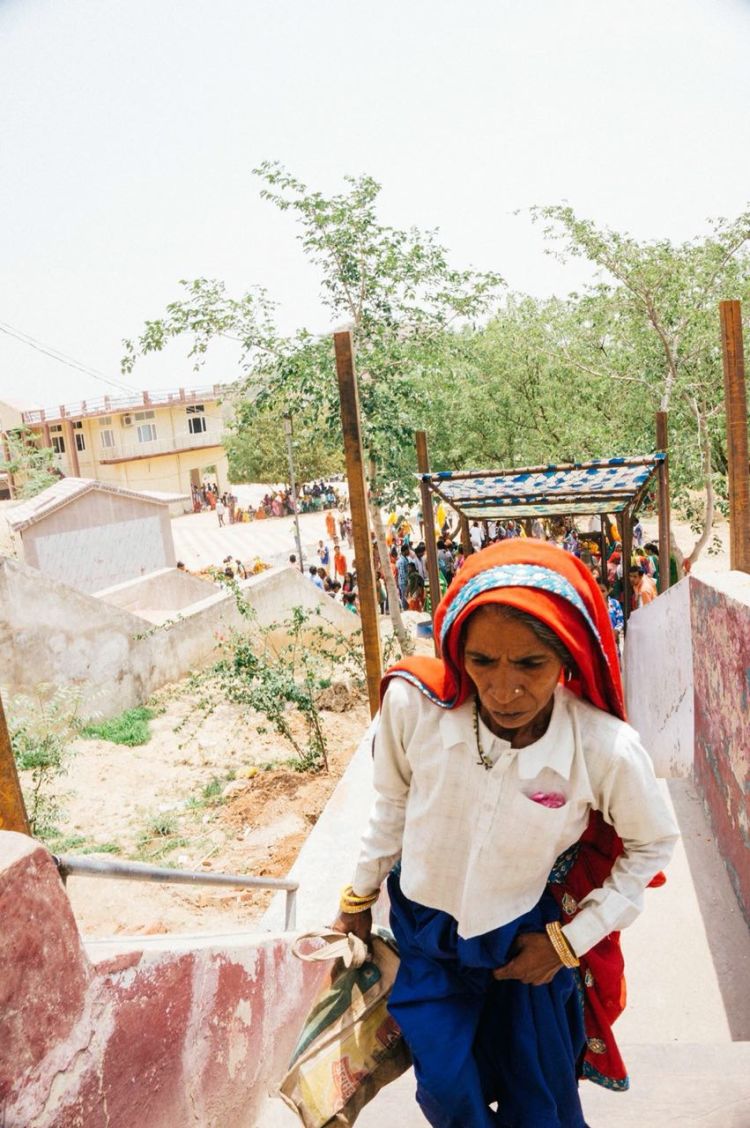
Many villagers take the clothes to the common water source to wash the clothes. Narnaul, Haryana, Picture credits- Abhay Khatris
Many villagers take the clothes to the common water source to wash the clothes. Narnaul, Haryana, Picture credits- Abhay Khatris
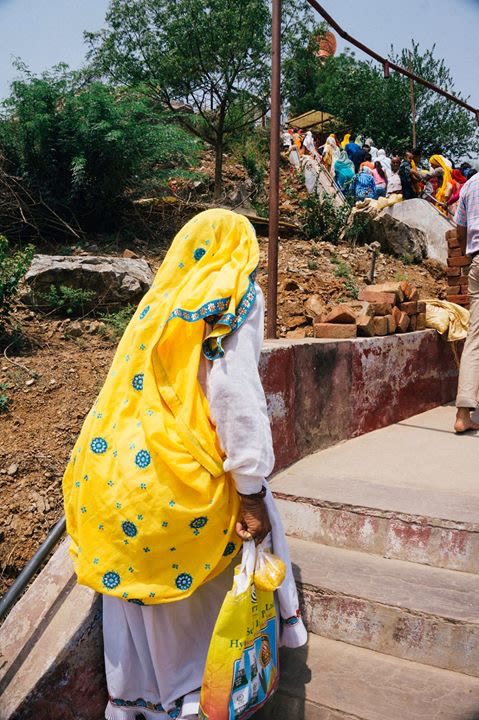
The clothes in the villages are dried out on the ground under the sun or on a clothesline or in their house for personal effects. Narnaul, Haryana- Picture credits- Abhay Khatris
The clothes in the villages are dried out on the ground under the sun or on a clothesline or in their house for personal effects. Narnaul, Haryana- Picture credits- Abhay Khatris

